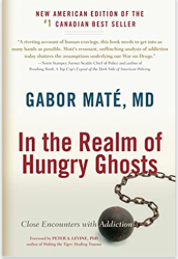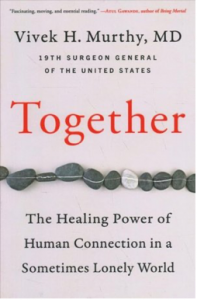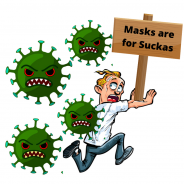Hidden Barriers to Happiness Blog
Have you always wondered about the invisible forces that affect your health, wealth, relationships and happiness?
For over 25 years, first as a neuroscientist, then epidemiologist, and now as a Holistic Brain Health Practitioner, I’ve been passionate about identifying underlying causes of mental and cognitive health challenges. This blog reveals my discoveries from my academic training, my passion for functional medicine, psychology, sociology, energy medicine and what I’ve learned from identifying secrets held by the subconscious.
If you want more health, wealth, better relationships and more happiness, find out what could be getting in the way! When you sign up to get my Top 10 Tips for a Happy & Healthy Brain, you’ll also get 2-4 newsletters per month featuring my blog, “Hidden Barriers to Happiness”.
What are you waiting for? Knowledge is power!
How to feel gratitude when your world is falling apart
I spent most of my early life being challenged with the idea of gratitude. As a daughter of a sociopath and a narcissist, I struggled with self-preservation in the midst of cruelty and craziness. I couldn’t trust the very people who were supposed to keep me safe, and my struggles with depression, anxiety, chronic stress, and loneliness made gratitude feel completely beyond my reach. And a big part of the problem was how I perceived my peers. Every one of them seemed to “normal healthy parents” who treated them well. At least, so I thought.
I had what I now call, “gratitude deficit syndrome”.
Are you neurotic, narcissist or neurotypical?
Regardless of how hurtful people can be, if we are in a relationship with them, we tend to assume that they share our similar values. But this isn’t always true. And this common assumption can get us in a lot of trouble, especially with narcissists.
While there are others that think like us (to some degree), these days, we regularly encounter people who shock us. We find ourselves saying, “How could they say (or do) such a thing?” “Doesn’t he/she care about my feelings?” And if we love the person, we might find ourselves making excuses for a person who has hurt us because we want so desperately to hold onto our original view of the person we fell in love with in the first place. (more…)
We can’t be healthy alone
In America, we frame our ability to succeed in terms of our own skills and hard work. We are typically incentivized to win, to become that next big star, to reach that next milestone, or to become famous.
This constant competitiveness creates an us vs. them mentality. It has made us reward and idolize those that have made it, and neglect those that struggle.
And for those who have made it, well, it’s been great for them. But meanwhile more and more of us are living paycheck to paycheck. More and more of us are facing homelessness. More and more of us are becoming depressed, addicted and suicidal.
A New Discovery about the link between Stress, Sleep and Healing
If a client is struggling with several chronic conditions where their problems are growing, I often find out that they aren’t sleeping well.
Sleep is vital for our bodies to repair.
Why?
Our bodies operate in two main modes. We have an autonomic nervous system that operates either in a rest and digest state, called the parasympathetic nervous system, or the fight and flight state, called the sympathetic nervous system. Our bodies cannot operate in both modes simultaneously. By default, the parasympathetic nervous system turns off the sympathetic nervous system.
Our bodies need to be able to default to the parasympathetic state in order to heal. And a lack of sleep might indicate that we can’t relax enough for our bodies to repair. Our bodies cannot both be in fight or flight, and rest and digest at the same time.
We have also known that sleep helps solidify what we’ve learned, and that our brains detoxify during sleep.
But recently, a new discovery at the University of Rochester shows a clear demonstration of how stress inhibits both our ability to sleep, and our ability to heal. (more…)
We Need Trust to Thrive
My world without trust
I grew up in an environment where I was regularly criticized, berated, or yelled at for minor infractions. I never knew when the tirades would come, and so I tried at all costs to avoid my parents. But it wasn’t easy to thrive in our small home. I didn’t know who I could trust. I felt like I was constantly walking on eggshells, and because I felt I could be blamed for just about anything, the world did not feel like a safe, just, or fair place to be.
It took decades to finally understand the diagnoses that explained my parent’s behaviors. But as a kid, it was much harder to make sense of the anger. I alternated between trying to please them and lashing out. Because I couldn’t make sense of my life at home and lacked healthy parenting, I had to draw my own conclusions about the world. I decided that I had to take care of myself. I couldn’t trust people of authority or God. Love wasn’t something that I could count on. I couldn’t trust that good things or good people could come my way. (more…)
How to dissolve hate into love
In the book “The War for Kindness” Jamil Zaki, Ph.D. shares the story of Toni McAleer, a former neo-Nazi organizer and skin-head in Vancouver, BC. The music culture, which fostered bigotry, drew him in. McAleer felt accepted in this culture, and thus embraced it and eventually became a leader recruiting others. He even built communities online and set up racist hotlines. They were designed to promote racism. In the process of organizing far-right Aryan existence activities, he lost compassion for people outside his own racial group. (more…)
The Key to Resiliency
Doctor Viktor Frankl, author of Man’s Search for Meaning, survived 4 Nazi concentration camps and was a neurologist and psychiatrist. He had an early interest in psychotherapy, and by the time he was in medical school, he organized special youth counselling centers to address suicides, which were happening in large numbers after receiving report cards. Frankl was able to recruit many notable psychologists at the time, and in 2 years, (more…)
Three Root Causes of Addiction
In The Realm of the Hungry Ghost, Dr. Gabor Mate, brilliantly and compassionately describes the plight of Vancouver’s hardcore drug addicts.
Drug addicts are society’s outcasts. With their difficult behaviors, and their tendency to lie or steal things to keep their addiction going, it’s tough to love and feel compassion for an addict.
But Dr. Mate eloquently reminds us, that far more of us are addicts than we realize. We might not want to identify with a drug addict, but if we reflect on our own habits, we might realize how hard it is to fight addictions. We can be addicted to a huge variety of things, including work, success, shopping, sex, screen time, coffee or a favorite food. An addiction is anything we have a compulsion to do, that we don’t feel like we have the ability to stop. How many of us are truly in control of our behaviors all the time?
Regardless of whether the addiction is considered acceptable or unacceptable by society, it often interferes with our relationships. Our significant other’s needs are often dismissed when we are in the middle of an addiction frenzy.
Why do so many of us struggle with addictions?
How to Overcome Loneliness
Many of us have experienced loneliness at some point in our lives. Regardless of whether we are with people or not, it can manifest as this aching sense of not feeling heard or understood.
Loneliness increases our risk for depression, anxiety, and addictions as well as chronic diseases. It is a huge problem with the elderly, and people suffering from disabilities. And in the middle of a pandemic, the pervasive of loneliness is a huge social concern!
Levels of connection
 While we all have different needs with regards to the number of people we interact with, Dr. Vivek Murthy, MD., author of Together: the healing power of human connection in a sometimes lonely world says we need 3 levels of connection: (more…)
While we all have different needs with regards to the number of people we interact with, Dr. Vivek Murthy, MD., author of Together: the healing power of human connection in a sometimes lonely world says we need 3 levels of connection: (more…)
Team People vs. Team Corona: Who’s Side Are You On?
I like to think of our ability to fight the Coronavirus as if we are were an army of people against the army of viruses.
When a virus infects an individual, it invades cells to find ways to replicate. If the individual has an army (his immune system) with everything it needs, the person has a much better chance of fighting the growing army of viruses in his body before the viruses are able to have much control.
Viruses also replicate by spreading through the population. A virus looks for opportunities to survive and replicate, and every person it encounters becomes an opportunity for conquest.
The more we feed the virus with its favorite food source: (more…)













